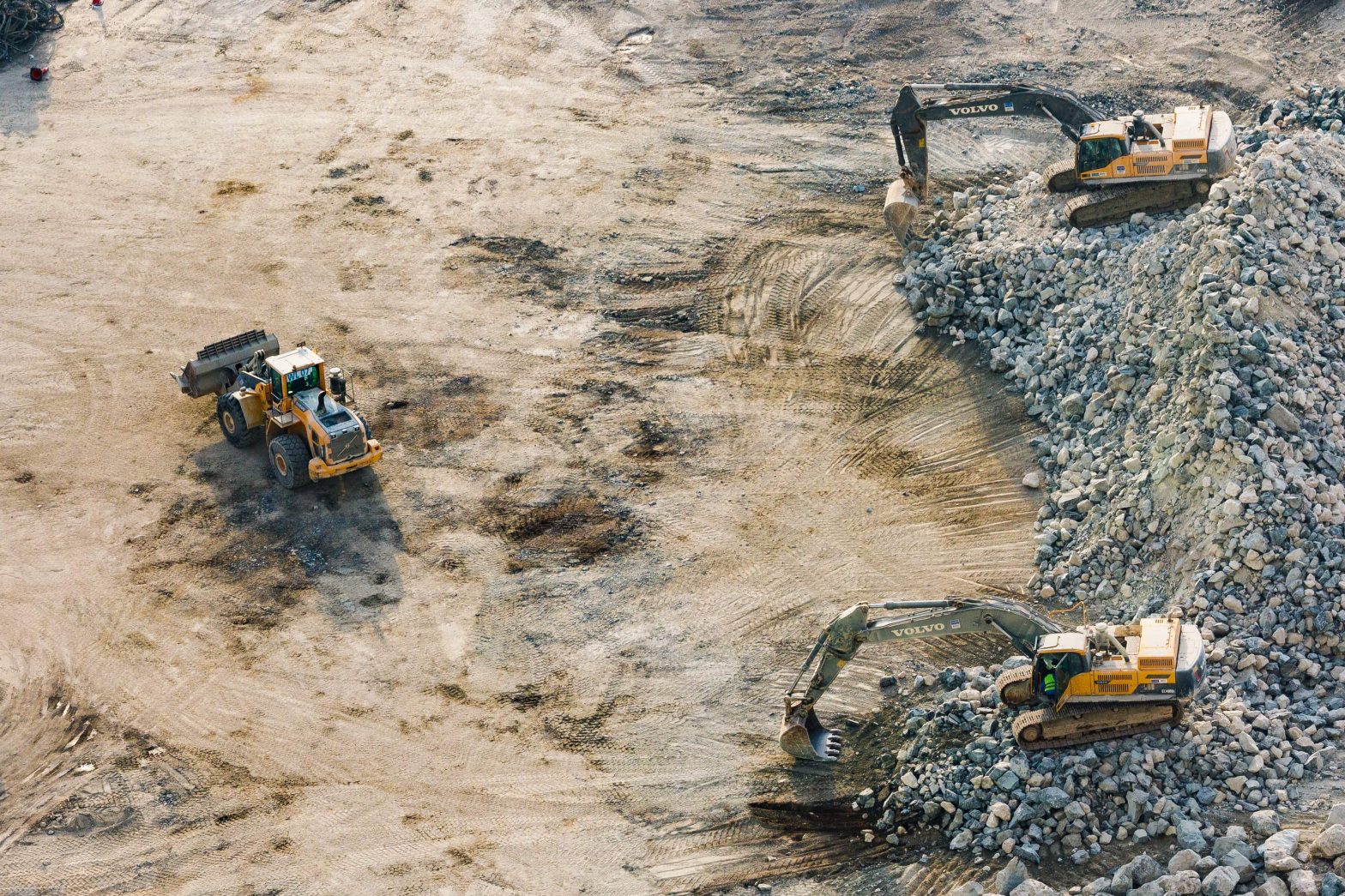
Major construction projects generate a significant amount of rubbish, so finding ways to manage worksite waste effectively is essential. This guide offers practical tips for construction professionals looking to improve the efficiency and sustainability of their waste management practices.
Understand Your Waste
The first step to effective waste management is understanding the types of waste your construction site generates. Common construction waste includes materials like wood, metal, concrete, and packaging. Identifying these materials helps in planning how to reduce, reuse, and recycle them more effectively.
Plan Ahead for Waste Reduction
Creating a waste management plan before starting your project can significantly reduce waste generation. This plan should detail how waste will be managed and identify opportunities for waste reduction. For example, accurate material ordering can prevent excess and reduce waste.
Choose the Right Partners
Working with the right suppliers and waste management companies can make a big difference. Look for partners who prioritise sustainability, offering solutions like returnable packaging or efficient waste-handling services to help you maintain eco-friendly construction practices.
Implement Recycling Strategies
Recycling is a key component of effective waste management. Place clearly labelled recycling bins on-site to ensure materials like metal, glass, and cardboard are separated from general waste. For larger items or specific materials like concrete, consider a construction skip bin hire service that specialises in recycling construction waste.
Optimise Material Usage
Minimising waste starts with optimising the way materials are used. Plan cuts carefully to reduce offcuts, and store materials properly to avoid damage. Encourage teams to use materials judiciously and consider design choices that minimise waste. By reducing the amount of materials you use or need to replace on the job, you can minimise the environmental impact of construction, saving time, money, and effort at the same time.
Reuse Materials
Whenever possible, do your best to reuse materials either on-site or in other projects. Materials like formwork, pallets, and certain fixtures can easily be reused, reducing the demand for new materials and waste production throughout the construction process.
Train Your Team
Educating your team about the importance of proper waste management is crucial. Training should cover how to sort waste, the benefits of recycling, and techniques they can use to reduce the materials they use. Getting the entire team to work towards an eco-friendly goal is great for reducing the environmental impact of any construction project.
Monitor and Adjust Your Strategy
Effective waste management requires ongoing effort. It is important to regularly review your waste management practices and make adjustments to your plan as needed. Monitoring your waste management strategies can help you identify areas that require improvement and ensure construction remains compliant with your environmentally friendly goals.
Use Skip Bins Efficiently
Skip bins hire is a highly effective way to manage construction site waste. It’s important to choose a construction skip that’s appropriately sized to accommodate your needs without overfilling. Efficient use of skip bins could also involve separating recyclable waste from general waste, streamlining the recycling process for a more straightforward experience.
Engage in Sustainable Procurement
Choosing materials that are sustainably sourced and made with minimal environmental impact can significantly reduce waste during construction. Properly research suppliers to find businesses that prioritise eco-friendly products and packaging to support your waste reduction goals.
Digital Documentation
Reduce paper waste even further by switching to digital documentation wherever possible. Sending plans, orders, and communications digitally greatly reduces the need for printed materials, contributing to your continued waste-reduction efforts.
Leveraging Technology
New technologies play a significant role in improving construction site waste management. From software that helps with material ordering to apps that track waste generation, leveraging the right technology can lead to more efficient waste practices across the board.
Improved Waste Management Solutions
Effective construction site waste management means more than responsibly disposing of rubbish. It’s about adopting a holistic approach that includes reducing waste generation, optimising material usage, recycling, and reusing materials whenever possible. By following these tips, construction professionals can contribute to a more sustainable and environmentally friendly industry, caring for our natural world for many years to come.





